Educating Bartenders Worldwide.
By Beverage Trade Network
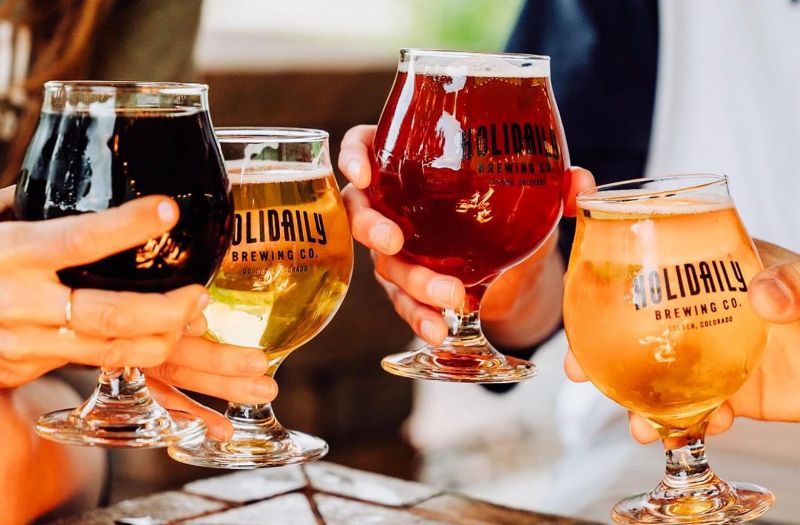
In the aftermath of the pandemic, the AlcoBev industry has encountered a variety of challenges and adapted to overcome them. From grappling with prohibitionist sentiments to embracing lifestyle shifts—such as the growing demand for vegan products—the industry has continually evolved. Each hurdle has been met with agility, whether through awareness campaigns, consumer education on social media, or innovative product development. After all, necessity is the mother of invention, right?
One such innovation in the world of beer is the rise of gluten-free beer. But what’s all the fuss about them, and how does gluten-free beer compare to the traditional brews we know and love? Let’s take a closer look.
To begin with, it’s important to understand that the "gluten-free" label is not just a passing trend. Gluten-free foods and beverages were originally developed for individuals with dietary restrictions—specifically those dealing with celiac disease or gluten intolerance. These individuals must adhere to a strict gluten-free diet to maintain their health, but that doesn’t mean they should miss out on enjoying new products and experiences, including beer.
When it comes to brewing, beer typically contains ingredients like wheat, barley, and rye—all of which have gluten. That’s why beer, in its traditional form, isn’t inherently gluten-free. However, the market for gluten-free beer has seen notable growth. Today, we have breweries dedicated entirely to gluten-free products, using alternative ingredients such as millet, hops, rice (yes, rice!), and buckwheat. Additionally, some brands offer "gluten-reduced" beers made with traditional ingredients like barley or wheat, where enzymes are introduced to break down the gluten protein. It’s worth noting, though, that gluten-reduced beers can still contain trace amounts of gluten, making it necessary to practice caution while picking out your beer.
If you're in search of exceptional gluten-free beers that deliver the same great taste as traditional brews while catering to a gluten-free lifestyle, check out these trailblazing gluten-free breweries. They’re setting the standard in this growing segment—and for good reason.
[[relatedPurchasesItems-31]]
Holidaily Brewing Company, founded by Karen Hertz, stands out as a 100% certified gluten-free brewery—one of only 16 in the United States and the only certified woman-owned brewery in the country. Inspired by her personal journey through melanoma and thyroid cancer, Karen adopted a gluten-free diet and sought to create delicious beer options for those with similar dietary needs. Holidaily crafts exceptional-tasting gluten-free beers on-site, ensuring rigorous gluten-free certification for a safe and enjoyable experience.
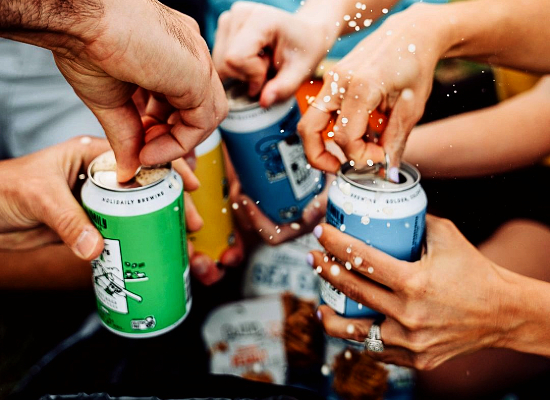
Image Credits: Holidaily Brewing Company
San Miguel's gluten-free variant, San Miguel Special, recently won a Silver Medal at the London Beer Competitions 2024. This light gold lager impresses with its creamy froth and bright appearance. The beer features delicate aromas of white fruits, banana, and apple, complemented by subtle floral notes. On the palate, it strikes a balance between moderate bitterness and a dry finish, making it an ideal pairing with gazpacho, grilled fish, or even chips.
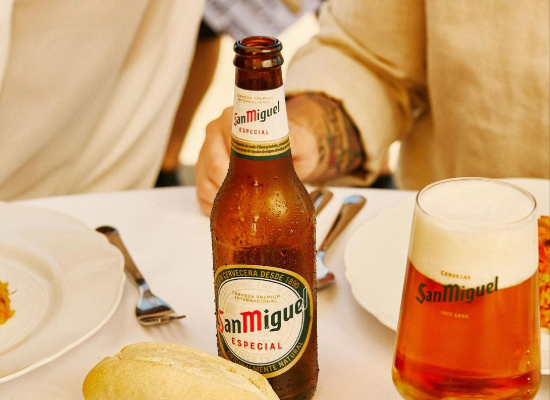
Image Credits: San Miguel
Nestled in McMinnville, Oregon, Bierly Brewing began as a home-brewing venture for JP Bierly, who has been crafting gluten-free beers since 2006. Diagnosed with celiac disease in 2010, JP established Bierly Brewing commercially in 2016 as Oregon’s second gluten-free brewery. Utilizing naturally gluten-free grains like millet, rice, buckwheat, and sorghum, Bierly ensures that all ingredients meet gluten-free standards.
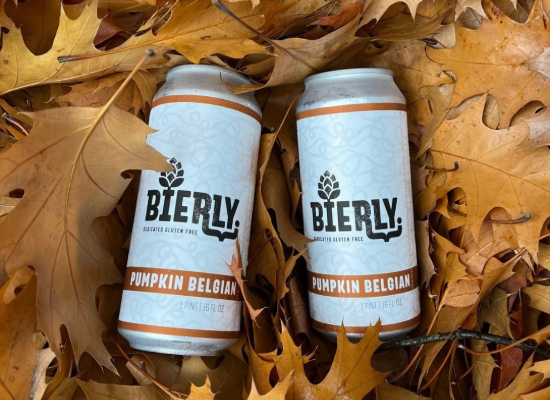
Image Credits: Bierly Brewing
As the first dedicated and certified gluten-free brewery in the United States, Ground Breaker Brewing has been a pioneer since its inception in 2011. Committed to using only premium, naturally gluten-free ingredients, Ground Breaker produces a diverse range of craft beers, from ales to lagers and sours, all brewed in an environment free from gluten-containing items.
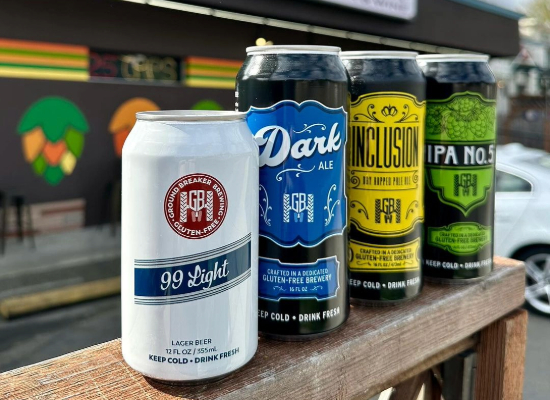
Image Credits: Ground Breaker Brewing
Founded by Derek Green, who faced a lack of gluten-free options in the UK, Green's launched the first naturally gluten-free beer in Europe in 2004. Today, Green's continues to produce a variety of gluten-free beers, including the original Discovery Ale, Dry Hopped Lager, India Pale Ale, Tripel, and Dubbel, all crafted with 100% gluten-free raw materials.
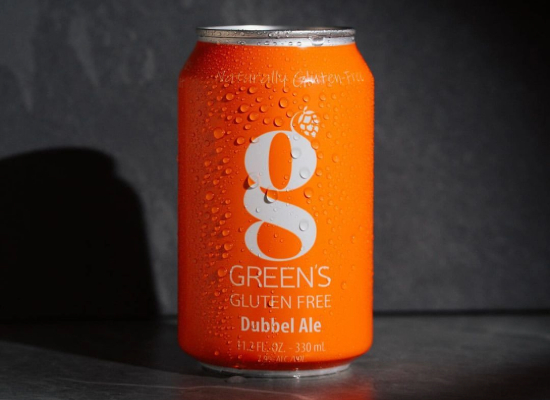
Image Credits: Green's Beer
Located in the heart of West Cork, Ireland, 9 White Deer Brewery prides itself on creating high-quality Irish beers using local ingredients. The brewery offers a range of gluten-free options, including Kolsch Lager, Pilsener, Pale Ale, Black IPA, Irish Red Ale, and a renowned Stout, showcasing innovative brewing techniques and a commitment to quality.
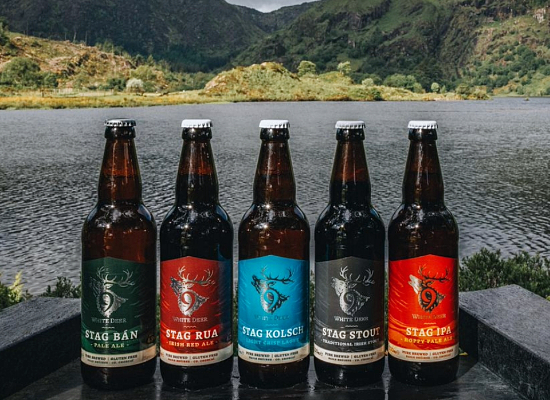
Image Credits: 9 White Deer Brewery
Launched in December 2018, TWØBAYS Brewing offers an exciting range of gluten-free craft beers brewed with millet, buckwheat, and rice. Based on the Mornington Peninsula in Victoria, this brewery focuses on creating unique flavors while navigating the challenges of all-grain gluten-free brewing.
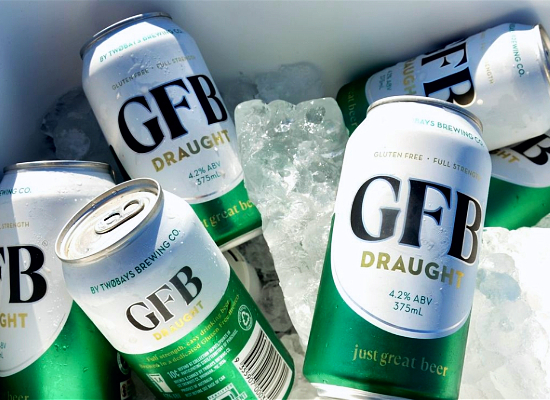
Image Credits: TWØBAYS Brewing
Grey Fox Brewing is dedicated to reshaping the perception of gluten-free beer through high-quality craftsmanship and modern brewing methods. Their offerings include a Gluten-Free Pilsner, West Coast Style IPA, Belgian Wit, Buckwheat Stout, and Belgian Pale Ale, all designed to deliver exceptional taste.
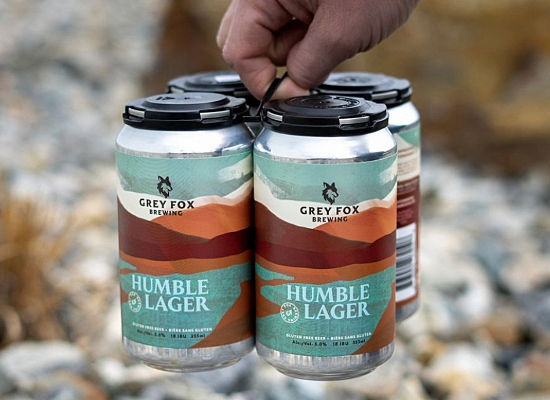
Image Credits: Grey Fox Brewing
As a leader in the gluten-free brewing scene in North America, Ghostfish Brewing aims to provide delicious, innovative beers that cater to gluten-free consumers. Their flagship beers include the Grapefruit IPA, Vanishing Point Pale Ale, Shrouded Summit Belgian White Ale, and Watchstander Stout, each crafted with unique flavors and gluten-free ingredients.
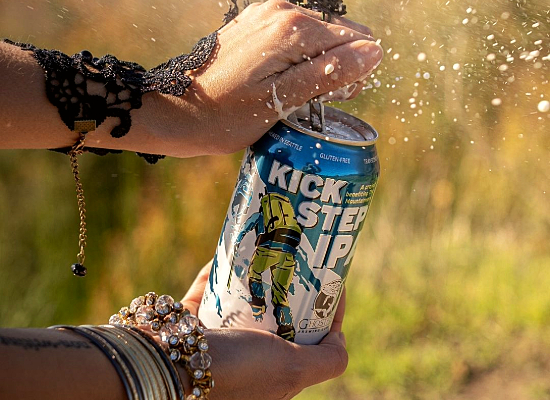
Image Credits: Ghostfish Brewing
At Triple Point Brewing, every beer is gluten-reduced with the help of protease enzyme, which is adjusted against the other other ingredients in order to reduce the gluten, ensuring it is less than 20ppm to be considered gluten-free. They focus on crafting great-tasting beers that are both gluten-free and nearly all vegan, ensuring that their offerings cater to a wide range of dietary preferences.
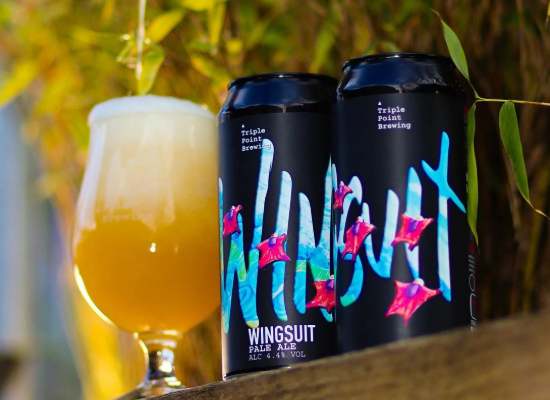
Image Credits: Triple Point Brewing
As the gluten-free beer market continues to grow, consumers can enjoy a diverse array of flavors and styles, ensuring that everyone can raise a glass and savor the experience, regardless of dietary restrictions.
Header image sourced from Holidaily Brewing Company (Instagram).
Related Links:
What Will a Profitable Cocktail List in 2025 Look Like?
What Makes for a Great Bartender in 2024: Insights from Industry Experts